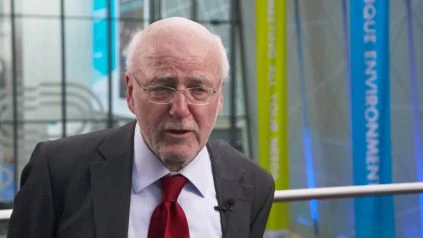Although there have been significant advancements in the treatment of acute lymphoblastic leukemia (ALL) in the last few decade, many patients still fail treatment. In this interview, recorded at the British Society for Haematology (BSH) 2018 Annual Scientific Meeting, in Liverpool, UK, Bob Löwenberg, MD, PhD, of Erasmus University Medical Centre, Rotterdam, Netherlands, provides an overview of the patient groups that are most prone to failure and the mechanisms behind this. Older patients and those with known high-risk mutations, such as FLT3, have an increased risk of therapy failure. Prof. Löwenberg highlights promising therapies for ALL, including FLT3 and IDH inhibitors, as well as antibodies and other immunotherapies.
[the_ad id="32629"]

